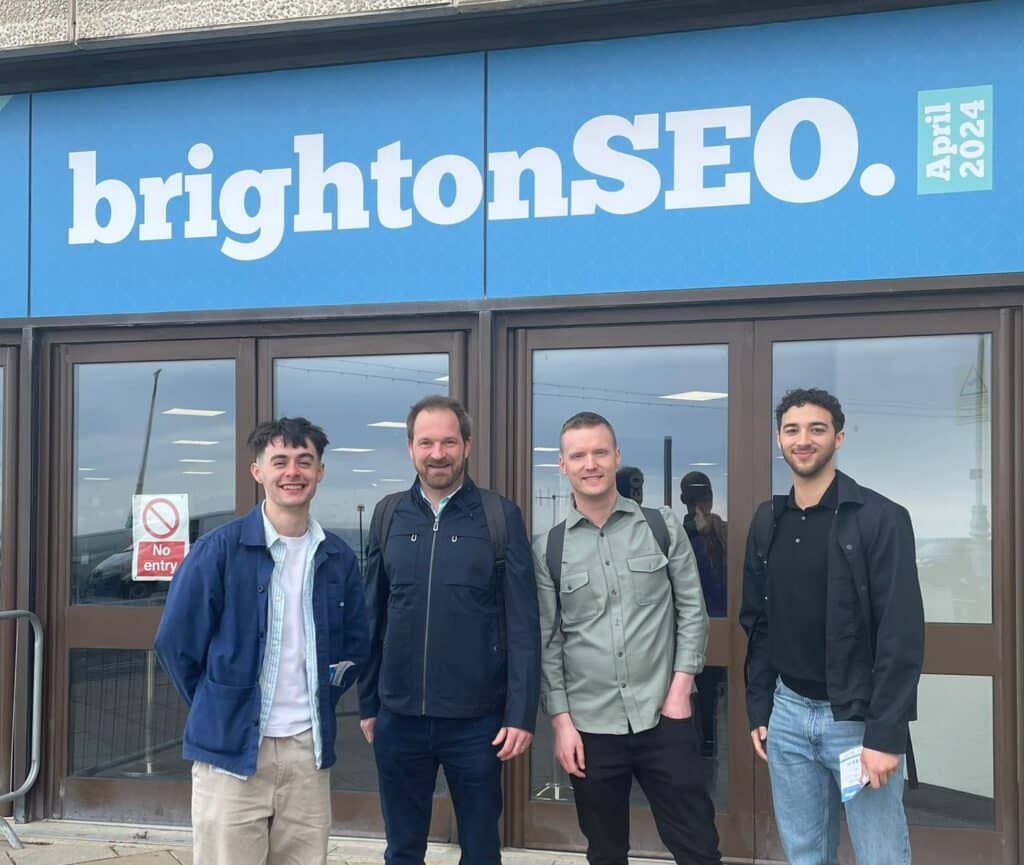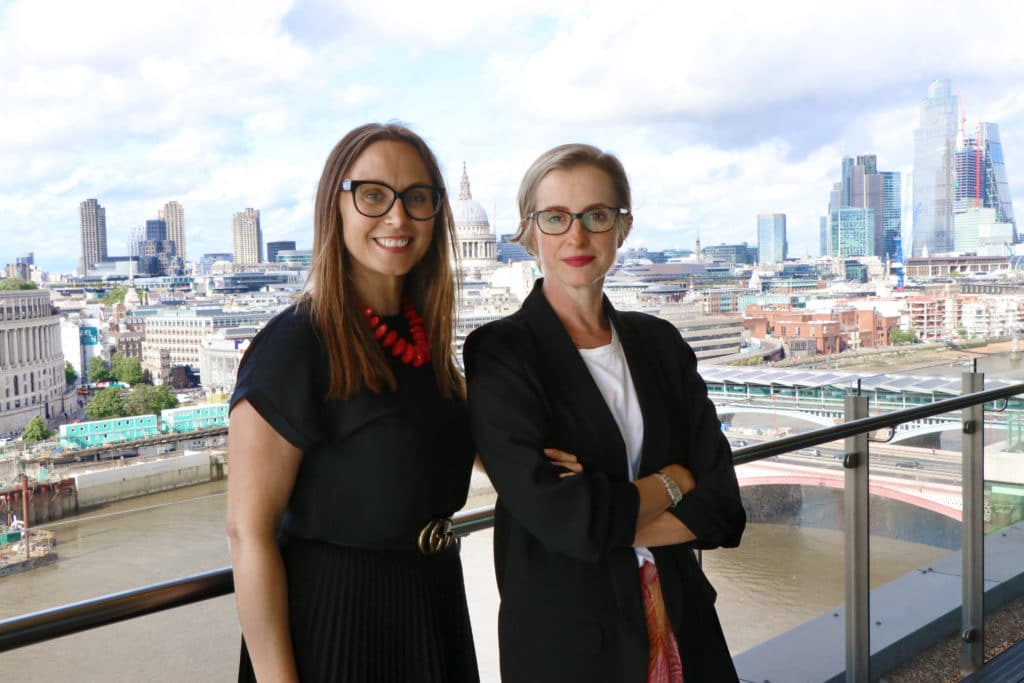BrightonSEO 2024: Key takeaways from our Organic Performance team
BrightonSEO is the world’s biggest search conference, bringing together thousands of SEO experts and digital marketers to network, learn and discuss how to do their jobs a little better.
This year, Wavemaker had the privilege of supporting the April conference as a premium sponsor, and positively provoking the industry through some of the sessions. Richard George, Head of Organic Performance delivered a session on the top techniques to develop a killer SEO content strategy, and our Chief Data and Technology Officer, Irin Rahman, joined a panel of experts to take a deep dive into AI and its ethics and implications for the industry.
Following the conference, our organic performance specialists, Richard George, Liam Chappells, and Mathew Duffin share some of their key takeaways for brands and marketers.
The dynamic nature of search and digital marketing
One of the key things the conference highlighted was the pivotal moment we find ourselves in within the evolution of search. The search landscape has recently seen some of the most remarkable and disruptive changes for over a decade. Advanced algorithms and the rise of Artificial intelligence (AI) is reshaping search engine results and creating new opportunities for brands and marketers to innovate, improve efficiencies, and scale in the way they develop and produce content.
This new era we are now part of is incredibly exciting and one that as an industry we are keen to be early adopters and adapt to the changes to deliver growth for our clients. It is also one that requires foresight, analysis and future thinking to help our clients navigate these changes and impact, threats and opportunities.
Richard George, Head of Organic Performance
Create content for real people, not search engines
As AI-generated content becomes increasingly popular, brands and digital marketing experts have enjoyed the benefit of producing content at scale, and with incredible speed. However, Richard George, our Head of Organic Performance in his session emphasised the need to keep humans in the loop at all levels of content strategy planning. It is important to constantly remind ourselves of the things that matter:
- the audience we’re targeting
- the roles humans play in creating a content strategy
- how those roles play out in the metrics that are important to Google around demonstrating experience, expertise, authority, and trust
To rank well on search engines, it is important to focus on the quality of content not how it is produced. In highly competitive sectors like Your Money Your Life sectors, brands that stand out are those who build a quality thought leadership content ecosystem around the right authors who can demonstrate experience, expertise and authority that can be trusted.
Search is a human behaviour
We search, we scroll, we consume content at an incredible rate. As Emily Goodyear alluded to at the conference, we need to mature our thinking and move beyond the Google ecosystem and look into the platforms where your audiences are starting their search and scroll journeys.
The so-called “10 blue links” are disappearing
With the rise of the Search Generative Experience (SGE), the popular “10 blue links” have long gone. Search engines are now answer engines trying to predict, answer and communicate. Brands need to think of new measurement as Ray Grieselhuber refers to in his talk.
SEO’s role in web accessibility
SEOs can play a major role in web accessibility for the 1.8 billion people with disabilities worldwide. Damien Roberts challenged his audience to think more about accessibility issues. SEOs can ensure that content is accessible to all users, contributing to a more inclusive online experience.
AI needs human SEOs just as much as human SEOs need AI
Unsurprisingly, AI emerged as a central theme throughout the conference, with speakers emphasising its potential as a complement to human SEOs rather than a replacement.
Liam Chappells, Organic Performance Director said: “To say the word “AI” was mentioned a lot would be an understatement! Most of the speakers were actually explaining how to best use AI, which just goes to show that AI is not a plug and play replacement for people – nor should it be.”
Christopher Hofman Laursen’s talk underscored the importance of proper training and context in utilizing AI tools effectively. Christopher explained how without first training ChatGPT and giving it “context” it simply hallucinates and produces dramatically inconsistent and unhelpful results.
There’s no doubt that AI is a transformational technology that’s here to stay. However, it’s only as powerful as the training it’s given upfront and understanding how to integrate AI into workflows can provide SEOs with invaluable support and efficiency. AI needs us to help it, so it can help us in return.
When used properly, AI can be like having a lightning-fast extra pair of hands (or ten). When used incorrectly though, in the complex world of SEO it can be more of a detriment than a help.
Liam Chappells, Organic Performance Director
Data and strategy: key to lead generation for ecommerce
One of the major pitfalls of advertisers is the inadequate use and integration of first-party data to build a strong leads pipeline and strategy. According to Organic Performance Executive, Matthew Duffin, one of the standout sessions for him was Veronica Ruiz’s talk as it stresses the importance of adopting the right approach to lead generation especially for ecommerce businesses.
“I found Veronica’s talk particularly interesting, as one of the clients I work with recently redesigned their lead generation flow, so the learnings from the talk can be fed back to provide positive actions for the client.”
For brands to activate effective lead gen campaigns, it is crucial to leverage their first party data, start early, test and learn, optimise and most importantly track their progress.
Matthew Duffin, Organic Performance Executive
A view from the stage
Head of Organic Performance, Richard George had the pleasure of positively provoking this year’s brightonSEO attendees with his session on top techniques to develop a killer SEO content strategy. Reflecting on his experience as a speaker, Richard explained:
“In the 20 years I have worked in the digital marketing sector this was my first time speaking at brightonSEO. The question I needed to ask myself is why did I wait so long? In the weeks prior, while I am deep in my own thoughts in crafting and shaping the presentation to inspire, educate and inform those 600+ people who attended my talk about how they can develop a killer content strategy what I had not realised was the scale and professionalism of the organisation. Nor did I realise the community that was to be created across the speakers.
Through the WhatsApp group and the speaker tour, it became apparent that there were speakers of all abilities and experiences. The event organisers and the speakers all supported each other in a way I was not expecting. From attending talks, sharing motivation techniques to simply saying “Good luck”, a quiet humbling and inspiring experience.”

Some final thoughts from the team
- Would I recommend anyone in SEO and digital marketing to go to brightonSEO? Absolutely! Will I be there next year? I do hope so. Richard George, Head of Organic Performance
- I had a great time learning and mingling with other SEOs and would highly recommend the opportunity of attending the conference to learn about SEO and wider digital marketing insights. Matthew Duffin, Organic Performance Executive
- brightonSEO is more than a conference to keep up with industry trends and uncover new SEO strategies, it is a place to network with like-minded professionals, and connect with the best brains from across the world. Liam Chappells, Organic Performance Director











